Many people tend to confuse personal trainers with gym or fitness instructors. Both fitness professionals specialise in helping people to achieve their fitness goals, but their education, duties and responsibilities, and salary expectations can be significantly different. In this blog post, we will explore the essential distinctions between gym and fitness instructors and personal trainers. We will discuss educational requirements, responsibilities, salaries, skills and attributes necessary for each role, and other pertinent comparisons to give you a better insight into these engaging and rewarding fitness professions.
What is a Fitness Instructor?
A fitness instructor plays a crucial role in the fitness industry. They are responsible for not only demonstrating exercises and teaching fitness classes but also ensuring that clients perform exercises correctly and safely. Additionally, they are responsible for maintaining a safe and clean environment in the gym or fitness centre.
Fitness instructors provide basic guidance for gym goers and assist clients in utilising various equipment effectively. With their expertise and dedication, fitness instructors contribute significantly to the overall well-being and success of individuals in their fitness journeys.
What is a Personal Trainer?
Personal trainers have a wide range of duties and responsibilities that extend beyond those of fitness instructors. They play a crucial role in developing customised fitness programs for each client, taking into account their specific goals, current fitness levels, and medical history. By working closely with clients on an individual basis, personal trainers are able to provide tailored guidance and support to help them achieve optimal results.
In addition to designing personalised fitness routines, personal trainers consistently monitor their clients’ progress and make necessary adjustments to their programs. This ongoing assessment ensures that clients are continually challenged and motivated, leading to sustained progress and improved performance.
Whether they are self-employed or employed by gyms or fitness centres, personal trainers are committed to helping individuals reach their fitness goals. They provide expert guidance, offer encouragement and accountability, and serve as a source of knowledge and inspiration throughout their clients’ fitness journeys.
Educational Pathways: Certifications and Qualifications
To pursue a career as a gym or fitness instructor, it is essential to hold a nationally recognised fitness qualification. The most commonly acknowledged qualification for this role is the SIS30321 – Certificate III in Fitness. This qualification provides a solid foundation for gym or fitness instruction is the minimum requirement to register as an exercise professional with industry organisations such as AUSactive and FITREC.
If you aspire to become a personal trainer, the minimum requirement for most employers, or to register as a personal trainer, is the SIS40221 – Certificate IV in Fitness. However, many personal trainers opt for additional certifications to enhance their expertise.
By acquiring the appropriate qualifications and certifications, aspiring fitness instructors and personal trainers can establish themselves as knowledgeable professionals dedicated to helping others achieve their health and fitness goals.
Day-to-Day Responsibilities: A Comparative Look
Fitness instructors play a crucial role in promoting health and wellness. Their daily duties encompass a range of tasks aimed at helping individuals achieve their fitness goals. Some of the key responsibilities of a fitness instructor include:
- Teaching fitness classes to individuals or groups, providing guidance and motivation.
- Assisting people in using gym equipment safely and effectively.
- Maintaining the cleanliness and safety of the gym or fitness centre, ensuring a pleasant environment for all.
On the other hand, personal trainers focus on providing tailored guidance to clients, helping them reach their specific fitness targets. A personal trainer’s day typically involves:
- Analysing client data, such as health history and fitness assessments, to develop a comprehensive understanding of their needs.
- Creating personalised fitness programs that align with a client’s goals and abilities.
- Training clients 1-on-1 and providing ongoing support, feedback, and adjustments to ensure progress.
Both roles are vital in supporting individuals on their fitness journeys, whether it’s in a group setting or through one-on-one sessions. By combining expertise, motivation, and a commitment to safety, gym and fitness professionals help people unlock their full potential and lead healthier lives.
Career Prospects and Opportunities
The fitness industry offers a wide range of career opportunities for fitness professionals, with diverse options for fitness instructors. These professionals can explore employment opportunities in various settings such as fitness clubs, YMCA facilities, martial arts studios, or community centres. In their roles, they focus on leading dynamic group fitness classes and providing expert guidance to clients, ensuring their fitness journeys are effective and enjoyable.
On the other hand, personal trainers have the flexibility to work in gyms or fitness centres, or even operate as independent contractors. This level of independence allows them to curate personalised training sessions tailored to the specific needs and goals of their clients.
Both fitness instructors, as well as personal trainers, have their unique advantages and provide rewarding experiences within the fitness industry. Whether it’s the joy of leading a group fitness class and witnessing participants’ progress or the satisfaction of seeing clients transform their lives through dedicated one-on-one guidance, these roles offer fulfilling and meaningful career paths for fitness professionals.
Salary Expectations: Understanding the Financial Differences
The financial compensation for fitness instructors and personal trainers can vary significantly depending on various factors such as experience, qualifications, place of employment, and location.
On average, a gym or fitness instructor in Australia can expect to earn between $64,000 to $80,000 per annum. However, these figures can increase substantially with experience and additional qualifications. Furthermore, instructors can also improve their earnings by conducting more classes or offering private sessions.
Personal trainers, on the other hand, have the potential to earn considerably more due to the personalised and tailored nature of their services. In Australia, a personal trainer can typically expect to earn anywhere between $40,000 to $75,000 per year when starting out. However, with experience, specialisation, and a well-established client base, personal trainers can earn upwards of $95,000 per year.
While there is a clear financial advantage in becoming a personal trainer, it’s important to remember that this role comes with increased responsibilities and often requires a larger investment in education and certification. Regardless, both roles offer the opportunity to make a positive and meaningful impact on individuals’ health and well-being, making them rewarding career choices.
Skills and Attributes for Success in Each Role
Fitness instructors and personal trainers possess different sets of skills and attributes to excel in their roles.
For fitness instructors:
- Great interpersonal skills: They can effectively communicate and connect with clients, creating a positive and motivating environment.
- Flexibility: They can adapt their teaching style and exercises to accommodate different fitness levels and goals.
- Physical stamina: They maintain their own fitness levels to demonstrate exercises and lead by example.
For personal trainers:
- Excellent interpersonal skills: They establish rapport and trust with clients, creating a supportive and motivating relationship.
- Knowledge of anatomy, physiology, and exercise science: They understand how the body works, and design safe and effective exercise programs to help their clients reach their goals.
- Adaptability: They can modify exercises and routines according to clients’ specific requirements, interests, fitness levels, and limitations.
- Organisation and self-motivation: They manage schedules, track progress, and stay motivated to help clients achieve their fitness goals.
Both roles require a strong dedication to working with clients and helping them improve their fitness levels.
Making the Choice: Which Path Suits You Best?
Choosing between a career as a fitness instructor or personal trainer will depend on your interests, qualifications, and goals. If you enjoy group fitness classes and helping people maintain their health and well-being, then a career as a fitness instructor might be for you. But if you’re looking for a more challenging role that requires adaptability, knowledge, outstanding communication skills, evidence-based practice and is financially rewarding, personal training might be the path for you. If you’re unsure which path to start down, or have any other questions, talk to our Career Advisors for more information on your options.
Conclusion: Starting Your Fitness Career Journey Today
In the end, whether you choose to become a fitness instructor or a personal trainer, both paths offer unique rewards and challenges. These roles provide avenues to make a significant impact on people’s lives, guiding them on their path to better health and fitness. The career prospects are wide and varied, with a range of employment opportunities available. Financially, personal training has the potential for higher earnings, but comes with additional responsibilities and educational requirements.
Fundamental skills such as excellent interpersonal skills, adaptability, and a strong knowledge of fitness and nutrition are pivotal for success in either role. Your decision ultimately depends on your personal interests, goals, and how you wish to contribute to the fitness industry.
Remember, a career in fitness is not just about helping others improve their health and wellbeing, but it’s also about continuous personal growth and development. Start your fitness career journey today, and not only will you transform lives, but you might also find your own life enriched in the process.

